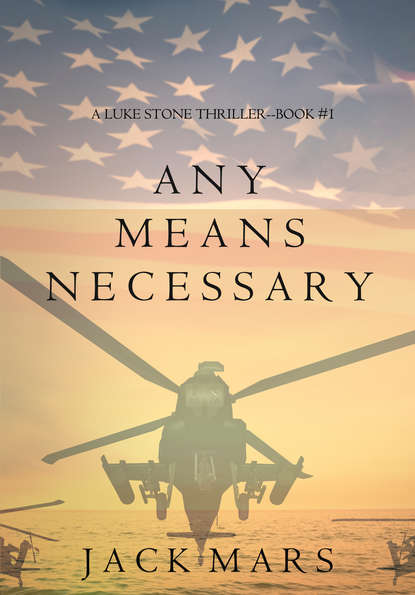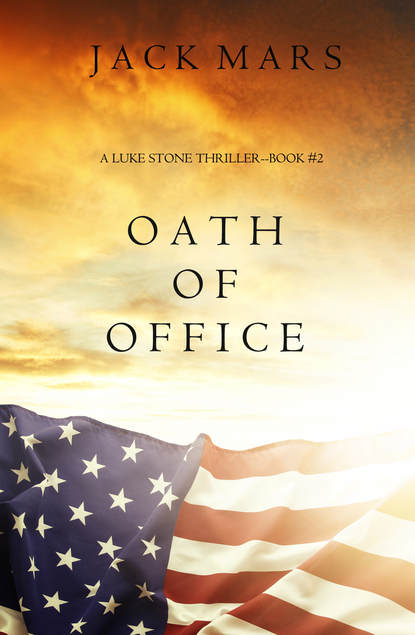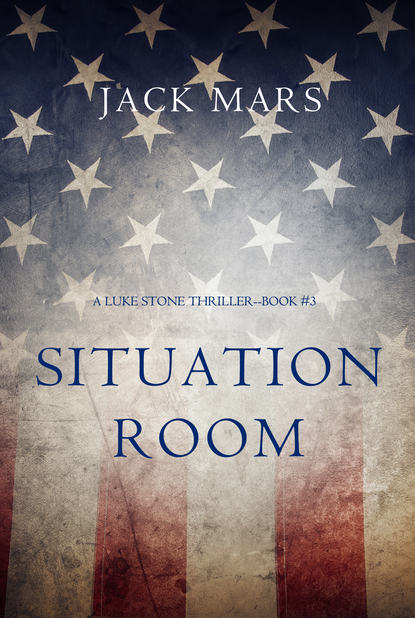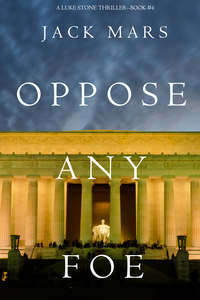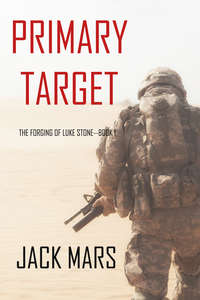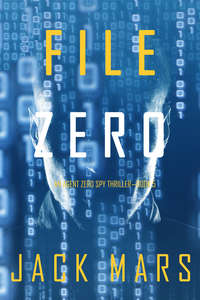
Полная версия
House Divided
Two gunshots rang out, and the men flanking the captain instantly sank to the floor, both dead before they reached it.
The smell of gunpowder rose in the room.
“Where are the diamonds?” Eddie said now.
The captain was calm. He hardly seemed surprised at the death all around him. By the looks of him, he had been alive, and at sea, a long time. He was probably accustomed to this sort of thing. He lowered his hands and shook his head.
“There are no diamonds.”
“No diamonds?” Eddie said, his grin broader than ever. “Are you certain?”
“Yes. There is nothing that you might want.”
“Why did you fight then? What were you trying to protect?”
The captain shrugged. “Ourselves. Because you are dirty Nigerian pirates. We knew you would slaughter us if you captured the ship.”
“What is on board here?” Eddie said. “Surely there is something.”
“I will say it again,” the captain said. “There is nothing here that you want. And you will be happier if you leave it where you found it. I assure you of this.”
Eddie laughed. “Something important, then. Show me.”
They went below decks. The captain walked Eddie and his men through hold after empty hold, moving ever downward into the bowels of the ship. There were no signs of life, not even rats. There were also no signs of cargo – just dark, rusty, empty holds swept clean.
Finally, they entered a large room. A tall bulk loomed in the darkness. Eddie’s men didn’t need to be told what to do. They put the flashlights on it.
As they approached, the thing became clearer. It was a large steel box, gunmetal gray. The edges were welded together. It wasn’t clear how to open it, other than perhaps cutting it with a blowtorch. There were Cyrillic markings on the outside – CCCP. That was interesting. The initials of the old Soviet Union. That meant this thing had been kicking around for more than twenty years. It towered above their heads.
“What is it?” Eddie said softly, his voice echoing through the cavernous hold. “A weapon of some kind?”
“I don’t know,” the captain said.
Eddie looked at him sharply. “You don’t know what it is?”
The man shook his head. “It is not my job to know. It’s none of my business.”
This thing had gotten everyone on his ship killed, and pretty soon, it would get him killed, too. But somehow it was none of his business.
“Who is your client?”
The man stared balefully, perhaps imagining the torture he would endure until he offered satisfactory answers.
“If I tell you, they will kill me.”
Eddie shrugged. “Yes, but if you don’t tell me…”
“You will also kill me.”
“I killed all your men,” Eddie said. “You are only alive because I say so. Your only hope is to tell me. Perhaps you can avoid your client. Maybe for a short while, maybe forever. But avoid me? It’s too late for that.”
“Your life will be forfeit if I tell you,” the man said.
Eddie smiled. How many times had his life been forfeit?
“Tell me anyway.”
CHAPTER FIVE
6:51 a.m. Eastern Standard Time
Headquarters of the Special Response Team
McLean, Virginia
Not even 7 o’clock, and there were half a dozen private cars in the parking lot, to go with the four black agency SUVs. The lot had already been plowed once, and a groundskeeper was out snow-blowing the walkways.
That’s what Luke liked to see – people ahead of the game. Technically, the place didn’t open until nine.
He held his identification to the scanner, and the big glass front doors unlocked. He stepped out of the blowing snow and into the main atrium. It was open and airy, with tall bamboo trees reaching toward the three-story ceiling. Everything was new and beautiful and high-tech. A stone waterfall greeted people as they entered, etched into the stone a message from Abraham Lincoln: Those who are ready to sacrifice freedom for security ultimately will lose both.
To Stone, it seemed that Lincoln was speaking to him personally. An agency like the Special Response Team was designed for rapid action, at times unfettered by the bureaucracy, the guidelines and the laws that slowed others down. The goal was security, of course, protection of the innocent, but there had to be a balance – they were not a law unto themselves. It was important to remember that.
He glanced around the lobby before heading to his office. It was hard to believe. I had to pinch myself to make sure I wasn’t dreaming. Wasn’t that what people said sometimes? Stone didn’t go in for that sort of thing, generally speaking, but in this case it was true.
The new SRT headquarters were the old headquarters from years before, but gutted, stripped to the studs, and totally transformed. From the outside, the squat, three-story glass and concrete building looked utterly drab and functional, like a state university building from the 1970s, or an old Khrushchev-era Russian apartment complex.
But the brand new black Bell 430 helicopter hunched on the pad, with a bright white SRT logo on its side, might give a hint what you’d find inside the building. There were offices on the first and second floors, and a state-of-the-art conference room and command center that was nearly a match for the Situation Room at the White House.
It had every technological innovation from Mark Swann’s fever dreams – including its own server farm, an encrypted network from which Swann could easily access spy satellites and data surveillance programs like ECHELON, and a small dedicated room for piloting drones. The workout center (complete with cardio equipment, weight machines, and a heavily padded sparring room) and the cafeteria were on the third floor. The soundproof gun range was in the basement.
The agency had twenty employees, the perfect size to respond to unfolding events fast, light, and with total flexibility. The new SRT was in its infancy, and they were still building teams and working to entice superstars away from private organizations, other government agencies, and the military.
Spun off from the FBI and now organized as a sub-agency of the Secret Service, the arrangement limited Luke’s interactions with the federal bureaucracy. He reported directly to the President of the United States, which at the moment seemed to be working out just fine.
Trudy Wellington poked her head out of her office as Luke passed. She was sitting in her wheeled office chair, and had rolled it to the doorway.
“Luke, I have something for you,” she said.
He glanced down at her and did a pretend double-take. “Don’t you have a home?”
She smiled and shook her head. “You know where my home is.”
Trudy was his science and intelligence officer, and her office was ten feet from his. Trudy looked slim and beautiful as ever in a green boiled wool coat and blue jeans. She had done away with the big, round, owlish red-rimmed glasses she used to hide behind. Now her pretty blue eyes were front and center. Those eyes always seemed to watch Luke closely.
Trudy was a mystery wrapped in a conundrum. For years, Luke had relied on her for intel and scenario spinning. But things had gotten complicated. After the Mount Weather disaster, after the original SRT boss, Don Morris, was implicated in a plot to overthrow the United States, it turned out Trudy had been in the midst of a long affair with him. She was arrested and held without bail under suspicion of conspiracy to commit treason. That should be enough to disqualify any person from working in intelligence again. Even worse, after she got out of jail, she disappeared. Her whereabouts during the year she was missing was something she refused to talk about. Things were complicated.
Even so, Luke had hired her to work at the new SRT anyway. Trudy and Luke had had their own brief dalliance during the Ebola crisis, something they never talked about and seemed to have put in the past. And Trudy was valuable for her ability to gather intelligence, and to make sense of it when she did. She was, to Luke’s mind, the best in the business.
“Okay,” Luke said. “What do you have for me?”
“It’s something from Swann.”
“Swann is here?” Luke said.
She shook her head. “Of course not. It’s seven o’clock in the morning. But he’s awake and he sent it to me a few minutes ago. As you know, we’ve got a short list of people we’re keeping tabs on. One of these is a man named Mustafa Boudiaf.”
Trudy turned into her office and picked up her tablet off her desk. Luke followed her to the threshold. She scrolled through some information.
“Mustafa Boudiaf,” she said. “He lives in Baltimore. Sixty-three years old, American citizen, born in Algeria during the Algerian War of Independence. He came to this country when he was nine. He spent much of his childhood in Algiers, and witnessed atrocities committed by both the French and the FLN.”
“How do we know that?” Luke said.
Trudy shrugged. “We listen to his telephone conversations.”
Luke nodded. “Okay.”
“Boudiaf appears to be a fundraiser for Islamic extremist movements in North Africa. Swann has tracked him moving large sums of cryptocurrencies on the dark web, and to a lesser extent, across popular crypto trading platforms like Coinbase. Those platforms are unregulated, but easy enough to watch.”
“What’s his cover?” Luke said.
“He’s an Uber driver, works nights mostly, often late nights. We believe he meets with donors and other people in his networks under the pretense of picking up fares. Once in the car, they’re free to talk for as long as the ride lasts. Swann has tracked him taking fares up to Philadelphia, northern New Jersey, and New York. He routinely drives into DC and out to Norfolk.”
“All right,” Luke said. “I’ll bite. Why is he on our radar today?”
Trudy raised an index finger.
“This morning, at four twelve a.m., just minutes after the plane crash in the Sinai, Boudiaf answered a phone call. Swann said he’s been unable to trace back the call, but it came from outside the United States. The man who called spoke in Arabic. He kept it brief. He said a phrase that, translated into English, means, It is done. Then he hung up.”
“Interesting,” Luke said. “But probably not enough on its own.”
“That was one,” Trudy said. “The second thing is that Mustafa Boudiaf is preparing to leave the country. Three days ago, a moving van pulled up to his house in Baltimore. The workers took a lot of furniture, boxes, and electronic equipment out of the place and drove off with it. Instead of taking the stuff to another house, they took it to a storage facility – a storage facility outside Harrisburg, Pennsylvania.”
“Odd,” Luke said.
“Swann says that two nights ago, Boudiaf purchased one-way plane tickets for himself, and his family, to Algiers. The flight is tomorrow night out of JFK, assuming the snowstorm lets up. The house he lives in is a rental. Very soon, Mustafa Boudiaf is going to be gone, and it’ll be like he was never here.”
“What’s your gut?” Luke said.
Trudy nodded. “He was involved in taking down that plane. Maybe in a small way, maybe in a large way. At the very least, he had prior knowledge the attack was coming. Now he’s leaving.”
“I was just at the White House,” Luke said.
Trudy’s eyes flashed… something. Luke couldn’t tell what it was.
“It was a Situation Room meeting. There was a general there from the Joint Special Operations Command. He said they think this plane crash was a prelude to something larger, and was maybe even designed as a decoy. Could Boudiaf be leaving because the next attack happens here?”
“Wouldn’t you like to know?” Trudy said.
Luke nodded. “Let’s pick him up. Can we get an assist from local law enforcement?”
Trudy shook her head. Her hair bobbed the slightest amount. “Not a chance. Too risky. The Baltimore PD is trying to live down a lot of bad publicity right now. There’s no way we’ll get an arrest warrant based on what we have, especially not at a moment’s notice. So the cops up there won’t touch this – it’s exactly the kind of thing that if played wrong, looks like a human rights violation.”
“Well, let’s play it right then. How many people in Boudiaf’s house?”
“Seven.”
Luke’s shoulders slumped. “Seven people?”
Trudy nodded and raised her eyebrows. “Boudiaf has a young wife and a five-year-old daughter. He has an adult son from a previous marriage, who lives in the house with his own wife and young son. And Boudiaf’s adult nephew lives there, too.”
“So two children live in the house?” Luke said.
“Yes, and they’ll probably be home today because of the snow.”
Luke rolled his eyes. “Terrific. Plus two other adult males.”
“Yes,” Trudy said.
“What do we suppose Boudiaf is doing right now?” Luke said.
“Given the late hours he tends to keep, we suppose he’s sleeping.”
“Then let’s get on it. If you don’t mind, give Swann a kick in the butt for me and get him in here.”
* * *“Big effort here. Big effort. Now’s the time, and you are the man.”
Ed Newsam lay on his back under the bench press machine. His tree trunk legs were draped in black sweatpants, and a black T-shirt hugged his broad chest. Words were stenciled across the T-shirt in white lettering: THE BEATINGS WILL CONTINUE. Once upon a time, the saying used to go “The beatings will continue until morale improves,” but Ed’s morale was doing just fine.
His MP3 player pumped old Public Enemy through expensive earphones. His body was soaked in early morning sweat – he’d been in here since 6:30. And he had the bench machine set to 380. One good rep, that’s all he asked. Better than good – pure, perfect, no hesitation on the press up, and nice, long, negative resistance on the way down. Something to get the sweat exploding out of his pores.
“Show me what you got,” he said to no one but himself, and pushed the bar. The weight slid upward, inch by inch. He held it for a second at the top, then began his slow descent. His arms trembled crazily. His wrists creaked like they would snap in half. The veins in his arms bulged. He could feel the blood rushing into his head – it felt like his brain might explode.
Finally, he let it go – the weight came down with a crash of metal.
Beautiful.
Ed was changing his lifestyle. His recent trip to Iran with Luke Stone had scared him a little bit. He and Stone had nearly died half a dozen times. Ed didn’t want to die – he wanted to live to see his two daughters grow up. But he was thirty-six years old, and not getting any younger. He hadn’t mentioned it to anyone, but the truth was there: he had felt old and slow on that mission.
And yet, he didn’t want to give up being in the field. During his time on the FBI Hostage Rescue Team, they had started using him as a trainer and a supervisor, rather than an agent and an operator. That was a wrong turn.
This… this was a right turn.
Right after the holidays, he had cut back on, and then cut out, the bread and pasta and the apples pies and the cookies. He had broken up with his first true love, McDonald’s – they just weren’t seeing eye to eye anymore. And he had committed to getting in here to the gym before work at least three days a week. His workouts had always been brutal. Now they were approaching monstrous.
He loved it here.
He loved being back on the Special Response Team, and loved what they had done with the old place under Stone’s leadership. The gym was brand spanking new, and had everything Ed needed, from combat ropes to pull-up racks to a 400-pound squat machine to a heavy bag. If he got in here early enough, he often had the place to himself.
The energy of the new SRT had Ed feeling an enthusiasm he hadn’t experienced in a while. And Stone seemed as jazzed as Ed. Gone were the beard and the Wildman haircuts. Gone were the haunted eyes and the pained expressions.
Luke had never let himself go physically – he was always tip-top in that regard, better than a man in his forties had any right to expect. His resistance to physical aging seemed almost superhuman. But Stone’s collapsing marriage, his divorce, and then his ex-wife’s death, had sent him into a psychological wilderness, and for a while it seemed like he might never return.
But now he was back. And he was on fire. It was a good thing. Stone’s commitment gave Ed the confidence he needed to invest himself in this organization. The SRT would not survive without Stone one hundred percent dialed in, and that’s where Stone was right now. When Ed had agreed to take this job, Stone had promised him he wouldn’t go off grid again, and so far he had been as good as his word.
“Think of the devil, and he will appear,” Ed said.
Stone had just walked into the gym. He strode across the new rubber flooring, making a bee line for Ed. Stone was clean shaven and sported a crew cut on his head. His eyes were sharp and alert. He wore tan slacks and a dress shirt, cinched with an actual tie. The tie had a caricature of John Lennon on it – Stone was even developing a signature fashion style. He wore business attire to work, but the ties were often whimsical, and sometimes they were plain ridiculous.
Stone smiled and said something to Ed.
Ed took his headphones off. “Sorry? I didn’t hear you.”
Stone shook his head. “I said, what are you shouting at?”
Ed smirked. “No you didn’t.”
Stone laughed. “Come on, man. Buy you a coffee? We have a lot to talk about.”
* * *“How’s the girls?” Luke said.
They were sitting in the SRT’s full-service, two-meal-a-day cafeteria. The cafeteria was Luke’s idea – he felt that having on-site food available would tend to get people in here earlier in the morning, and keep them here at lunch. If people were inside SRT headquarters when they ate, and even when they worked out, things would happen – ideas would spark, connections would be made. That’s what Luke wanted from his people.
So far, the idea was working exactly as planned. Today was a heavy snow day, and it was only 7:30. Even so, the room was already bustling with a handful of eager beavers, getting their breakfast.
Ed shrugged. “Good. Growing up too fast.” He was slouched in his chair, still in his workout clothes, stirring organic coconut oil into his coffee instead of creamer.
“Cassandra’s got me jumping through hoops to see them, but what else is new? It’s nothing I can’t handle. She petitioned the court to have me reveal my whereabouts at all times. I told them my whereabouts were often classified information, and thankfully the judge took my side on that one.
“Then Cassandra up and moved to the suburbs south of Richmond over the Christmas break. She claims the schools are better down there, safer, and that’s probably true. But it’s not good for the girls to move around like that. Also, it’s not lost on me that the judge told her not to leave Virginia, so she moved as far away as humanly possible, while still remaining in the state. I used to have a twenty-mile roundtrip to see my girls, and now it’s more like two hundred miles.”
“Cassandra’s a beautiful woman,” Luke said. Truer words were never spoken. Ed’s ex-wife was tall and statuesque. It was if Naomi Campbell hadn’t been discovered, had never become a supermodel, and Ed had married her. And had children with her.
Then got divorced.
Now Ed smiled. “That’s how they get you to stick your leg in the trap.”
“It’s the most natural thing in the world,” Luke said.
“Been this way since the dawn of time,” Ed said. “But I’m guessing that you didn’t interrupt my workout to discuss the travails of men and women.”
Luke shook his head. “No. You watch anything about this plane crash in Egypt?”
“How could I not?” Ed said. “They weren’t saying much about it, though. The casual TV watcher could be forgiven for thinking it was a normal plane crash. Just one of those unfortunate things that happen sometimes.”
“It wasn’t,” Luke said, sipping his own black coffee.
Ed smiled. “Tell me something I don’t know.”
“I was at the White House this morning.”
Now Ed’s smile was nearly ear to ear. “I said tell me something I don’t know.”
“There was an emergency meeting,” Luke said. “Kurt Kimball thinks the plane was brought down by a rocket attack, targeting Marshall Dennis specifically. He was about to open a hotel on the Red Sea there.”
Ed stared at this coffee, thinking about that. His face clouded. He swirled the coconut oil around and around.
“Okay.”
“General Loomis was at the meeting,” Luke said.
“Frank Loomis?” Ed said. “JSOC?”
“You know him?”
Ed shrugged. “I was on loan to him from Delta one time. The operation got about as FUBAR as possible. He nearly got a bunch of us killed. I’ll tell you about it one day.”
Luke nodded. “He was playing coy this morning. Said his intelligence people told him the attack was a decoy, a cover-up for something bigger. When the President pressed him on how he knew that, or what the next attack might be, he said he – ”
Ed finished the sentence for him. “He wasn’t at liberty to discuss that.”
“Exactly,” Luke said.
“So what’s our role in this?” Ed said.
“There’s a guy up in Baltimore. Trudy and Swann think he’s dirty, and that he’s about to skip town. I’d like to grab him today before he disappears. See what he has to say. We’ll never get an arrest warrant, at least not on short notice, so…”
Ed smiled. “You want me to go up there and bag him?”
Luke shrugged. “I’d say a team of six should do it. Ride with a couple of your best people to make sure it gets done. But also bring a couple of your newbies. I’d like to watch them in action, see what we’re looking at.”
“What’s the situation on the ground?” Ed said.
“It’s a house. Swann has the details. There are two women in there, and two children. Three adult males. All we want is the subject, who is in his sixties. I’d say tumultuous entry, move fast, bag him and bring him out. Try not to break anything.”
“In other words,” Ed said, “don’t kill anyone.”
Luke nodded. “That’s right.”
“You’re a very gentle man,” Ed said.
Luke smiled. “I try to be.”
“Okay. Consider it done.”
CHAPTER SIX
8:40 a.m. Eastern Standard Time
Westgate
Baltimore, Maryland
“Do you have a look at this place?” Ed said into his microphone.
Mark Swann’s deep, throaty voice came over his speaker. “You mean real time?”
Ed shook his head. “No, I mean back in 1978. Yes, real time, Swann.”
“Of course not. I can’t see anything. I don’t have a drone in the air on a day like today, and even if I could put one up, the cloud canopy is too low. All I can see is coming from your body cameras.”
“So you can’t see what’s going on in the backyard.”
“Not at the moment, no. But you have that aerial map, right? And the floor plan?”
Ed sighed. “Yes.” They were going in blind.
“Then you should be good.”
Ed was sitting in the back of a white van, parked thirty yards up the street from the house where Mustafa Boudiaf lived. The van had an orange, yellow, and green SMECO logo on it, with a lightning bolt through the middle. SMECO was the shortened version of Southern Maryland Electrical Cooperative, an electric company that didn’t even serve this area.
Three people were in the van with him, members of his team. They were dressed the same as him – in black long-sleeve fleece shirts, heavy tactical vests, and cargo pants lined with lightweight Dragon Skin armor. Pulled over the tactical vests were yellow reflective vests with the SMECO logo – just like electrical workers out to fix a power outage on a snowy day would wear. On their heads were white combat helmets with hinged facemasks, currently in the up position. A person not sure of what they were looking at might imagine those helmets were hardhats.
Ed glanced out the rear window. It was a relatively affluent neighborhood. The house was tan stucco, nondescript, two stories tall, set back on the other side of a wide lawn from the road. A bay window faced the street, next to a red front door. On the right side was a driveway with a black Lincoln Town Car in front, and maybe some kind of Toyota in back. On the left side was a narrow alley between properties. A long hedge lined the front sidewalk.
Everything – the hedge, the two trees on the front lawn – was brown and bare. The snow was blowing pretty hard.
Ed was calm. He looked at his people.
Two of them were young, early to mid-twenties. That would be Rodriguez and Stamos. Ed had taught Rodriguez at Quantico – she was one of his best students. She was the fittest person there, could knock out more pull-ups than Ed himself. She could run a five-minute mile, then follow it up with a hundred pushups and another five-minute mile. And she was serious – dead serious. Maybe a little too much. She wanted very badly to prove herself.




